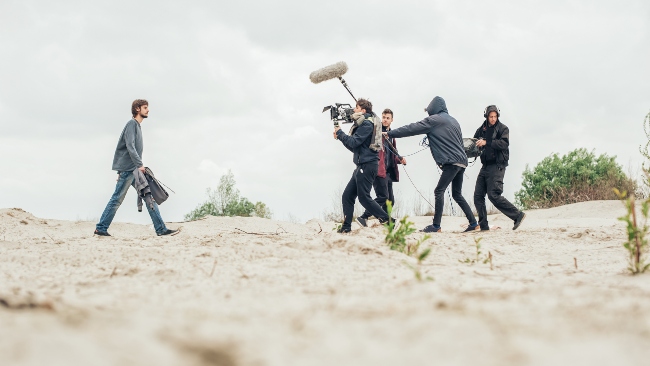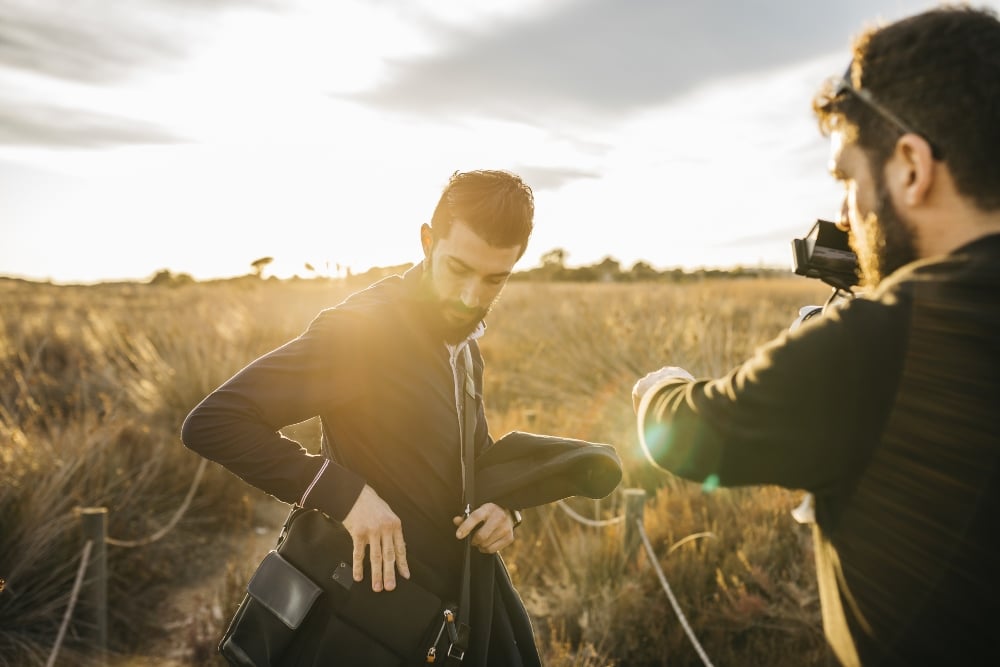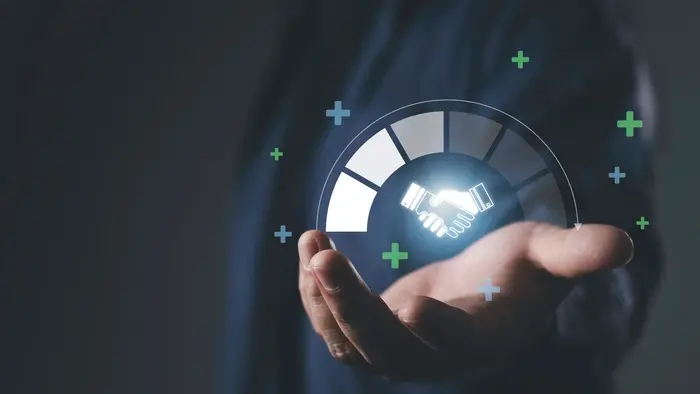Who Needs a Gaffer? The Real Members of a Video Production Team
Editor's Note: This blog was updated for accuracy and relevance on August 27, 2024. Here's a multiple-choice question for you. When a movie ends, and...
3 min read
 Ed Heil
:
October 30, 2025
Ed Heil
:
October 30, 2025
Everyone's mesmerized by what AI can do with video. Generate scenes from text prompts. Swap backgrounds. Clone voices. Edit footage in seconds instead of hours. The capabilities are impressive, and they're getting better every month.
But here's what gets lost in all that excitement: AI can't tell your story. It can assemble footage, but it can't decide which moment matters most. That's the producer's job, and it's never been more critical.
A producer isn't just keeping the project on schedule, though timelines matter. They're not just managing the budget, though money matters too. The producer is the person who makes sure your creative vision shows up in every interview and every piece of b-roll you capture.
They're watching for the moment when your employee stops giving rehearsed answers and starts talking about why they actually love working there. They're the one who knows that the third take was better than the first, even though everyone else thought the first one was fine. When you're capturing b-roll of your facility, the producer is deciding which angles tell the story you need to tell—not just pretty shots of the building, but footage that shows what makes your operation different from everyone else's.
And when it's time to edit, the producer makes the hard calls about whose soundbite stays in and whose gets cut. Not because someone said something wrong, but because this story needs these specific pieces to work. A great producer knows the difference between a good quote and the right quote. They make sure every story delivers its full impact, not most of the impact or close enough, but all of it.
Now add AI to the mix, and suddenly everyone thinks video production got easier, faster, cheaper. And in some ways, it did. You can generate stock footage without hiring a crew. You can edit rough cuts without knowing keyboard shortcuts. You can test different versions without starting from scratch.
But corporate storytelling isn't about generating content quickly. It's about capturing something true. AI can't watch an interview and recognize when someone's eyes light up because they just thought of the perfect example. It can't feel the energy shift in the room when a CEO stops reciting talking points and starts speaking from experience. It can't tell the difference between a quote that sounds good and a quote that means something.
People are blown away with AI's capabilities and forget that technology isn't the same as judgment. Speed isn't the same as instinct, and efficiency isn't the same as understanding what your audience needs to hear.
Corporate storytelling lives and dies on authenticity. Your audience can tell when a video feels manufactured, when the editing is technically perfect but emotionally flat, when everything looks professional but nothing feels real.
An experienced producer knows what “authentic” looks like. They've conducted enough interviews to recognize when someone's being genuine versus when they're performing. They've seen enough projects to know which moments will resonate and which ones will fall flat, no matter how polished they look. That judgment can't be automated, not yet and maybe not ever.
AI is a tool, a powerful one, but it's still just a tool. The producer is the person who decides how to use it, when to use it, and when to ignore it completely because the human approach will work better. When you're trying to attract talent, you need someone who understands what makes a career opportunity compelling. When you're creating a brand video, you need someone who can shape raw footage into a narrative that sticks with people. When you're capturing customer stories, you need someone who knows which details matter and which ones distract.
That's not an AI “skill set”. That's a human one.
If you're creating corporate video right now, you're probably hearing a lot about AI and how it's changing everything, how it's making production easier, how you should be using it. Some of that's true. AI can speed up parts of the process, handle repetitive tasks, and give you options you wouldn't have had before.
But don't confuse AI's capabilities with a producer's value. The technology can't replace the person who understands your story, knows your audience, and makes the thousand small decisions that turn footage into something people actually want to watch. The companies creating videos that connect with people aren't the ones chasing every new AI tool. They're the ones who understand that powerful storytelling still requires human judgment, human instinct, and a producer who knows the difference between content and a story worth telling.

Editor's Note: This blog was updated for accuracy and relevance on August 27, 2024. Here's a multiple-choice question for you. When a movie ends, and...

Over the last two years, the pandemic has shattered long-held structures within the world of work. The idea of a majority remote workforce shifted...

With so much content available online, audiences are sharper than ever at detecting what feels genuine—and what doesn’t. Overly produced videos with...